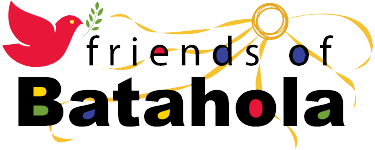Terror, sadness, uncertainty, anger, and confusion inundate our country.
A sociopolitical crisis has been taking place in Nicaragua since April 18, 2018. Nicaraguans were peacefully protesting on that day against a tax increase to fund the pension system, among other issues, when they were suddenly and violently attacked by government forces.
The following day, in response to the attack against the people’s civil rights, students took to the streets to peacefully protest. By the end of the day, several protestors were killed and many more were injured. This only encouraged more people to start demanding respect for their human rights.
While the people demanded justice, the government tightened its methods of repression and began:
- Censoring media outlets,
- Vilifying protestors,
- Arming pro-government groups to attack using excessive force,
- Violating the privacy of citizens,
- Practicing extrajudicial executions,
- Paying snipers,
- Obstructing justice,
- Committing arson,
- Denying medical care in public hospitals,
- Arresting people arbitrarily,
- Coercing state employees to participate in pro-government activities,
- Disseminating propaganda,
- Intimidating and threatening leaders of social movements, and
- Kidnapping and torturing protestors.
In response, many Nicaraguans have barricaded their streets to defend themselves from the death squads. As a result, transportation is limited, and there is a food and gasoline shortage. Despite the danger, many civilians continue to peacefully protest in the streets.
At the same time, some of those who oppose the current administration have begun to take the police hostage. From April 19 to June 6, five police were killed. To add to the confusion, some Nicaraguans are looting, committing arson, and even posing as paramilitaries in order to carry out a femicide.
Terror, sadness, uncertainty, anger, and confusion inundate the country. Over 300 people have been killed.
Since May, the government has been in peace talks mediated by the Catholic Church. While members of the Civil Society Alliance, who represent the private sector, students, civilians, and farmers have used a National Dialogue as a means of communicating the peoples’ demands for early elections and the return to a democracy, the government has used the talks as a means of stalling. After high-ranking members of the Catholic Church were attacked on July 9, the talks were suspended.
The Center continues its mission, as organizations that defend human rights are now more important than ever. On June 25, paramilitaries arrived at the park in front of the Center and opened fire on children playing marbles. Three children were injured, and one adolescent boy was kidnapped and is currently being held in a high-security prison that is infamous for its methods of torture. Despite having a warrant for release and being a 17-year-old street vendor, the young boy is being held and is to be tried as an adult for weapons trafficking.
For the safety and security of everyone, the Center has briefly suspended children’s activities. Despite the fact that most of our students have dropped out of classes due to fear, the Center marches on and is keeping its doors open. We are committed to helping others, especially in this time of crisis. All of our programs and classes are being redesigned to help our students as they navigate through this collective, on-going trauma. We ask for your prayers and support.
